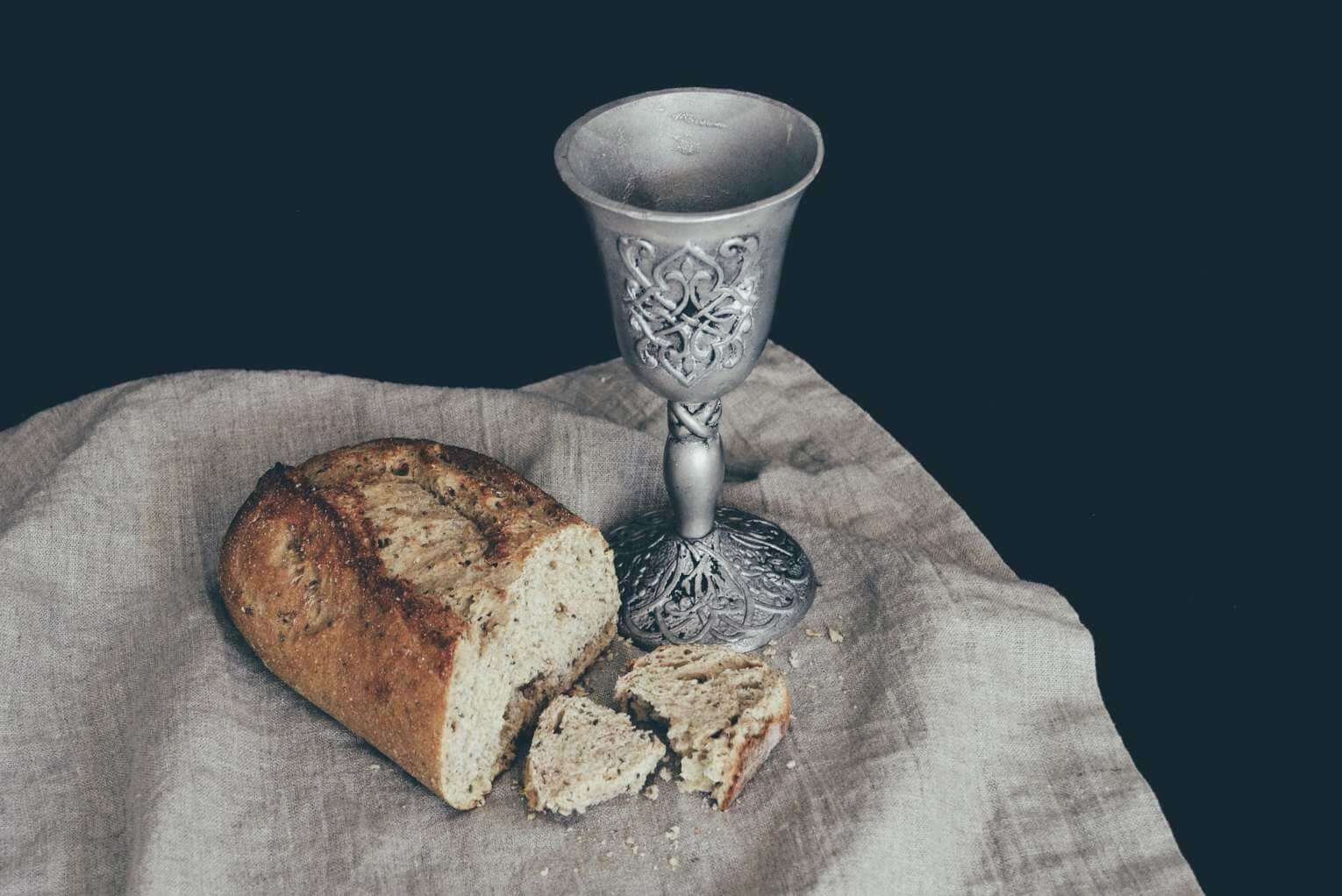Our church fellowship commemorates the “Lord’s Supper” on the first Sunday of each month in a biblical act of remembrance and worship. This repeated reminder of the final meal of our Lord with His disciples is not just a communal observance but a deeply personal one. It may also be observed in our other church gatherings or even privately in the sanctity of our own homes as an intimate expression of our faith traditions.
We view this holy observance as a devotional reflection of Christ’s sufferings and death and a reminder and celebration of our Lord’s victory on the cross. Our founding pastor, Jack Hayford, taught that “participating in Holy Communion is meant to release celebration, not self-flagellation. It is an occasion for sharing in the triumph of the Cross, the power of its provisions, and the joy of our hope.” This perspective infuses the Last Supper’s reobservance with a sense of joy and celebration, enhancing its spiritual significance for us.
Paul’s Revelation From the Lord
The apostle Paul, who was not a believer in Jesus until after our Lord’s passion, death, burial and Resurrection, related after the day of Pentecost that he had a direct revelation from the Lord Jesus about what happened on that fateful night when Jesus was betrayed (Matt. 26:26-30, Mark 14:12-26). He said:
Breaking news, Spirit-filled stories. Subscribe to Charisma on YouTube now!
“On the night when he was betrayed, the Lord Jesus took some bread and gave thanks to God for it. Then he broke it in pieces and said, ‘This is my body, which is given for you. Do this in remembrance of me.’ In the same way, he took the cup of wine after supper, saying, ‘This cup is the new covenant between God and his people—an agreement confirmed with my blood. Do this in remembrance of me as often as you drink it.’ For every time you eat this bread and drink this cup, you are announcing the Lord’s death until he comes again” (1 Cor.11:23-26, NLT).
The Last Supper was not just a standalone event but was deeply rooted in Jewish history. It looked back to God’s deliverance of the children of Israel out of bondage in Egypt. Jesus took elements of that Passover meal they had just finished and repurposed them as reminders of His pending substitutional sacrifice and the triumph of His cross.
He was identifying Himself with the Paschal Lamb, the lamb sacrificed in connection with the Passover (Ex. 12). Understanding this historical context deepens our appreciation of the Last Supper and its significance in our faith.
A New Covenant Initiated
The Passover meal Jesus and the disciples had eaten together was a physical symbol of the covenant God had initiated with the children of Israel, in which God acted on their behalf and asked for their obedience in return. Jesus explained that in a new agreement He was making with them, the bread represented His body and was to be broken as a gift for them, and the cup He held for them was to be “confirmed with my blood” on the cross. In each of the three synoptic Gospels, Jesus added that He would “not drink again from the fruit of the vine” until the kingdom of God was established on earth.
Since water baptism and the Lord’s Supper were observed or commanded by our Lord Jesus (Matt. 28:18-20, Luke 22:14-20), most Christian groups practice these as sacred actions or “sacraments,” which they believe are means of grace through which God imparts spiritual blessings. Human leaders in some authoritative groups have added extrabiblical rites as required sacraments to observe.
Protestant groups generally prefer to use the word “ordinances” rather than “sacraments” and only regard those practices instituted by the Lord, which are clearly ordered or “ordained” to be repeated regularly by the church. Some groups add the example of our Lord in foot-washing (John 13:1-17) as a third ordinance. Whether this practice was to be observed continually in the church or intended only to show his disciples, true servanthood of heart and hand is unclear.
Holy Communion Celebrates Our Living Lord
Paul says that as often as we celebrate the bread and cup of holy Communion, we actually “announce” or “declare” the Lord’s death “until He comes again” (1 Cor. 11:26). Our faithful observance of our Lord’s life, teachings, death, burial and Resurrection (1 Cor. 15:3-8) are powerful testimonies of the abundant life God has promised to give us. Over all our sins and failures, personal problems and family needs, we can declare the triumphant life that springs from our living Lord and His abiding Holy Spirit.
Join Charisma Magazine Online to follow everything the Holy Spirit is doing around the world!
Gary Curtis served for 27 years as part of the pastoral staff of The Church on The Way, the First Foursquare Church of Van Nuys, California. Since retirement in 2016, he has continued to blog at worshipontheway.wordpress.com. Gary and his wife live in Southern California and have two married daughters and five grandchildren.












































